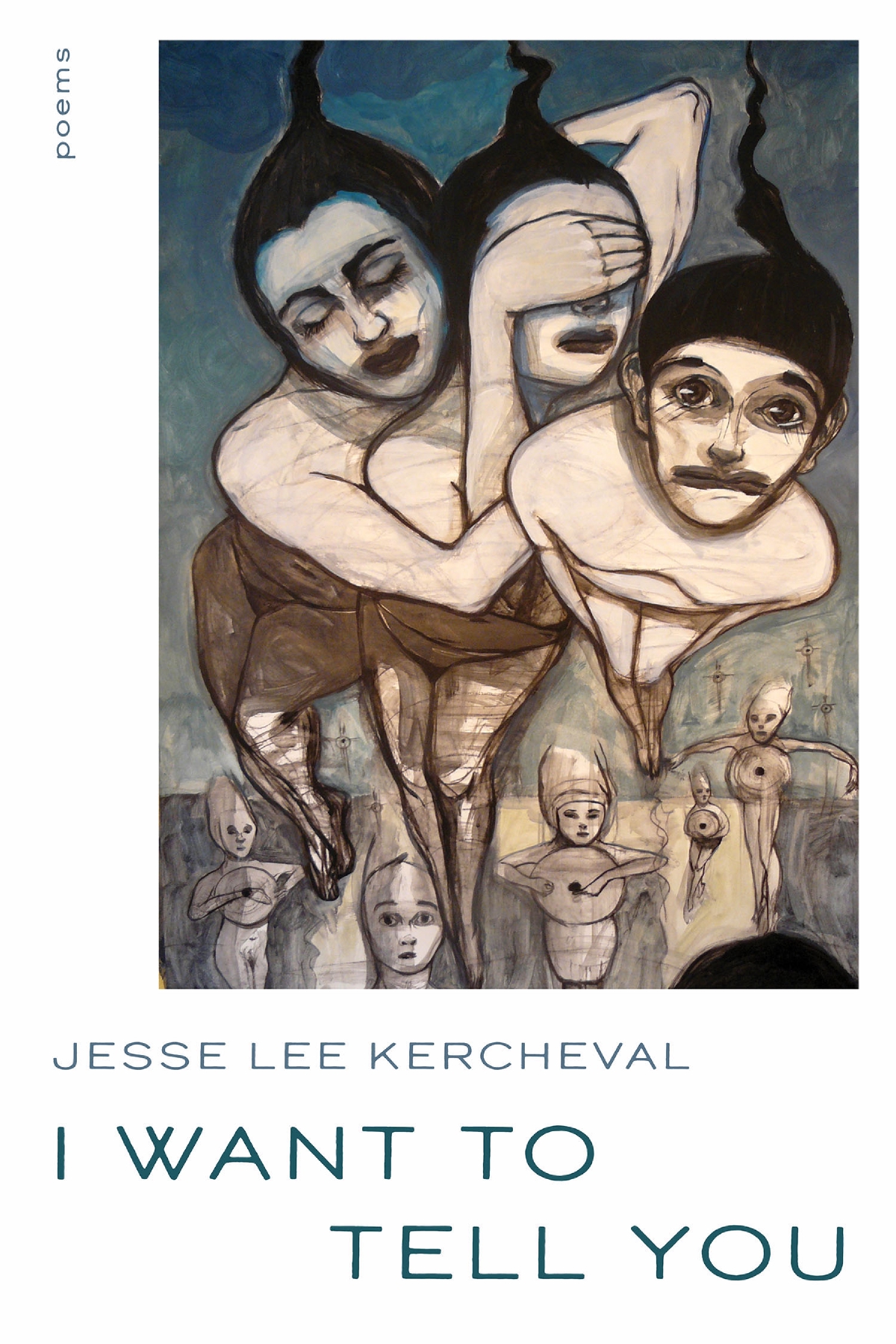
I Want to Tell You
In her sixth collection of poems, I Want to Tell You, Jesse Lee Kercheval bares her soul in a narrative made from the threads of grief, love, and life. These are poems sung from the depths of grief, yes, but that are also about life and the vital importance of appreciating our surroundings and taking at least one moment to see what was always there.
The beautiful imagery in Kercheval’s lines, whether in an open form or in the more structured poems, call for an appreciation of the world around us:
‘The sky/ a bruise/ the beach /a scar’
’the hot morning unfolds its bright arms and perches on the bed'
’there is a sun in every lampshade & worlds revolve around them'
The poems, although very personal to Kercheval, speak directly to the reader, because we have all lost someone, we are all familiar with the anger, we have all asked the pointless Why? And we spend our lives avoiding the most obvious and natural end, but as she points out in the opening poem “I want to tell you” - don’t kid yourself because we are dying all dying and the people we love are already dead. I loved the wit and bluntness of “When you think about it” where Kercheval, in a few brief lines, strips away the illusions of modernity and exposes the human skeleton from the perspective of time. We are reminded *[Our] skeleton[s] the same as Marie Antoinette’s - revolutions come, wars too, but we die & are buried in these same old-fashioned bones. *
The voice in this collection is bold, direct, at times angry, at times subdued when arguing with God and the universe about the loss of loved ones. In “The half-life of grief"Kercheval’s witty dissection of grief exposes our illusions:
*I thought love was the meaning of heaven. *
*Now, it turns out, *
death holds the only damn key.
This collection of poems are about unpicking, getting the layers of grief out in the open. These unmasked, honest conversations with the dead and the living expose the bare bones of grief and come to terms with nothing less than life. The reader is invited to examine their own grief, to highlight the cracks, deepen the marks grief has left until they rupture, rather than erase. A bit like the Japanese art of kintsugi. Healing takes place when grief and life meet and coexist.
Kercheval writes movingly about day-to-day conundrums and dilemmas. In the very personal “I am telling you” she reminds us how easy it is to become greedy and always want more, because ‘Once you start looking,/ how can you ever stop? Once you start, /one will never be enough…/. She holds us to account and pleads with us to at least be still/at least notice every tree and *Be the one who loves & is forgiven. /Be. *
In this little book the reader is allowed to enter the eye of a hurricane, which I found liberating — a safe place to let the fury take over and then allow it to wash out —- leaving the reader calm and composed to appreciate the wonder of life. Kercheval’s poetry in this collection is distinctly economical, philosophical and at times extremely personal; she hasn’t employed orchideous language but by bringing to life every-day objects and naming frankly the emotions we experience when we lose someone, she allows the reader to enter that realm between grief and happiness.
Kercheval’s lines hit straight to the core: ‘if existence were balanced on a knife point,/ if our crossing were nothing but a burden,/ then the map would not be folded,/ then there would be no map.’
I Want to Tell You is available now from University of Pittsburgh Press.